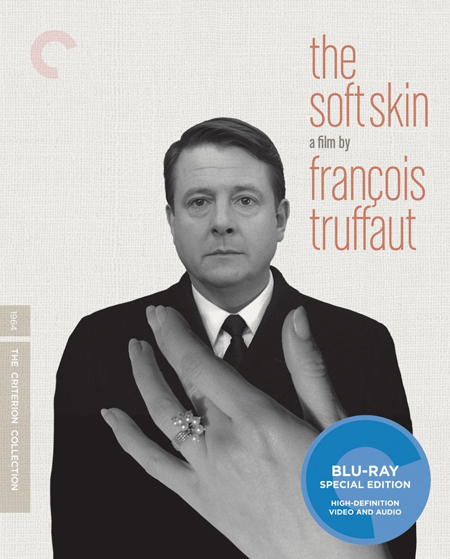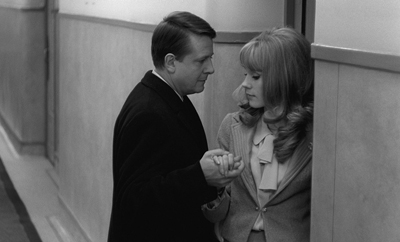
“CAUTION: WRECKED LIFE AHEADâ€
By Raymond Benson
There
have been a lot of movies about adultery and the ultimate havoc it can cause. More
recent titles would include the likes of Fatal
Attraction or Unfaithful. Some of
them have a happy ending, others not; however, there is always a moral to these
tales: Don’t do it unless you want to wreck your life.
Still
riding the crest of the French New Wave, François Truffaut followed his huge
1962 success, the delightful Jules and
Jim, with his fourth feature, the unexpectedly somber drama, The Soft Skin. In fact, it shares
elements with the thrillers of Alfred Hitchcock. Truffaut presents us with the cautionary
story of a successful and respected publisher and writer (Jean Desailly) who
meets and begins an affair with a flight attendant (Françoise Dorléac). The man
is also married with a young daughter. The development of the tale emphasizes
the danger involved in embarking on such an act. How do you keep it a secret
when you’re well known? How do you manage to live the double life and deceive your
wife? Truffaut directs the piece as if it were indeed a crime drama. The
suspense comes in watching Desailly dig a hole so deep that he can’t get out of
it. And then the violent ending—well, let’s just say it’s a shocker.
During
the period between Jules and Jim and
the making of The Soft Skin, Truffaut
had collaborated with Hitchcock on the landmark interview book Hitchcock/Truffaut, so it’s not
surprising that the French director was influenced by the master of suspense. A
video essay extra on the disc by filmmaker and critic Kent Jones examines these
traits and the many ways filmmakers can be influenced in general ways by other
artists. The Soft Skin could very
well work with a Bernard Herrmann score, but instead Georges Delerue delivers an
appropriately melancholic and tragic soundtrack that fits beautifully with the
events unfolding before us.

Desailly
is very good as a man blinded by lust but bound by social convention. Dorléac,
who was the elder sister of Catherine Deneuve, is, of course, gorgeous, and
Truffaut’s cinematographer Raoul Coutard allows the camera to lovingly dwell on
her. Ironically, Truffaut left his own wife after the completion of The Soft Skin and began dating Dorléac. Dorléac
was an actress on the same professional trajectory as her sister when her life
was cut short in a disastrous automobile accident in France in 1967. One can
only imagine how Dorléac’s career might have blossomed and how she would have
aged along with Deneuve. Like her sister, Dorléac would have been a timeless
beauty.
The Soft Skin may not be one of
Truffaut’s masterworks, but it is one of his more solid efforts that was perhaps
not sufficiently appreciated at the time of its release. It is, in fact, a
sincere, atmospheric, and wistfully sad drama about the many ways that love can
cause terrible pain. The picture’s warning to would-be adulterers is quite
clear—don’t do it.
Criterion’s
new high-definition digital restoration beautifully shows off Coutard’s sharp
black and white imagery. Interestingly, a few New Wave traits—freeze frames and
jump cuts—still linger in Truffaut’s work in ’64.
Other
extras include the excellent 1999 documentary Monsieur Truffaut Meets Mr. Hitchcock, about the historic
interviews conducted for Truffaut’s book; an interview with Truffaut from 1965
about the film; and an audio commentary by screenwriter Jean-Louis Richard and
Truffaut scholar Serge Toubiana.
The Soft Skin reveals a
different side of Truffaut than you may be accustomed to. Check it out.
CLICK HERE TO ORDER FROM AMAZON